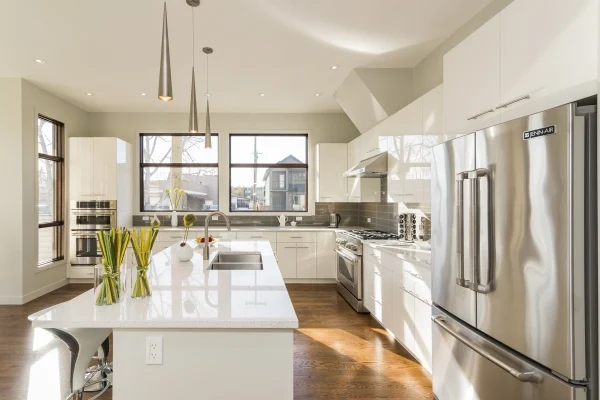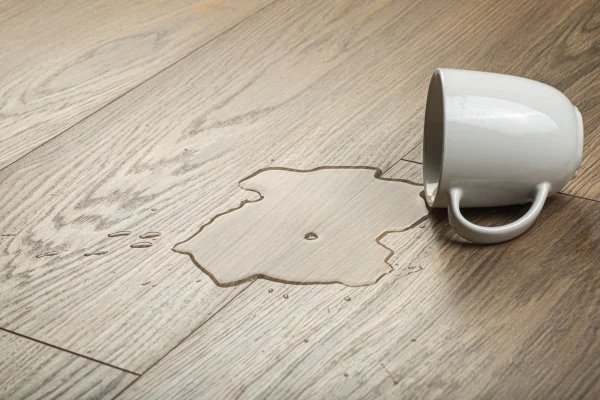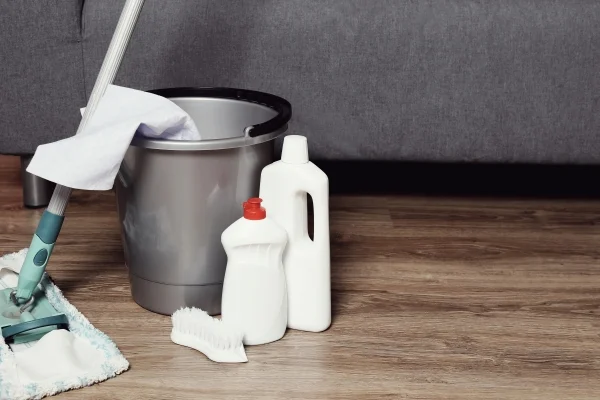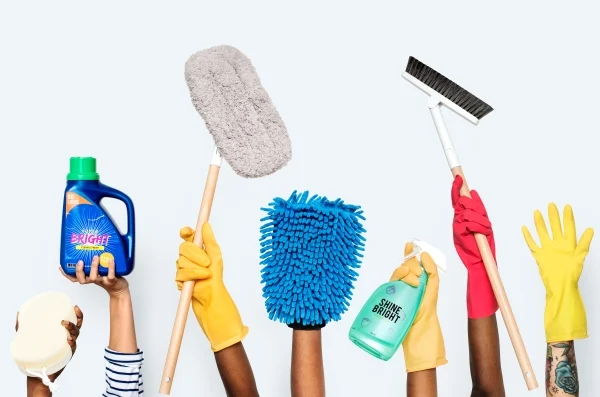Hardwood floors are a timeless and elegant choice for many homeowners, offering both beauty and durability. However, not all hardwoods are the same, and proper care is essential to keep them looking their best. Whether you're new to hardwood flooring or have had it for years, understanding how to maintain and protect your floors can make a huge difference in their longevity and appearance. There are various methods to clean, protect, and care for your hardwood floors, but what are the most effective techniques? How do you ensure your floors remain in top condition? Keep reading to discover the key tips and tricks for maintaining beautiful hardwood floors in today’s modern homes! Hardwood floors are a popular choice among homeowners due to their natural beauty, strength, and versatility. They come in a wide range of styles, from light oak to dark walnut, making it easy to match any interior design. Additionally, they’re easy to clean and can last for decades with the right maintenance. There are three main types of hardwood flooring: solid wood, engineered wood, and laminate. Solid wood is made from a single piece of wood, while engineered wood consists of multiple layers that offer better stability. Laminate is the most affordable option, often mimicking the look of real wood without the same level of maintenance. Each type has its own pros and cons, so choosing the right one depends on your lifestyle, budget, and home environment. For example, engineered wood is more resistant to humidity, making it ideal for basements or areas with high moisture levels. The type of hardwood floor you have will influence how you should care for it. There are two primary categories: solid wood and engineered wood. Engineered wood is constructed with multiple layers, typically a top layer of real wood over a core of plywood or composite materials. This construction makes it more stable and less prone to warping than solid wood, especially in humid environments. It's available in a variety of wood species and finishes, making it a versatile option for many homes. Solid wood flooring is made entirely from a single piece of wood, usually harvested from mature trees. It offers a classic look and can be sanded and refinished multiple times, which makes it a long-lasting investment. Popular options include red oak, white oak, maple, and hickory. Understanding the type of floor you have is crucial because different materials respond differently to cleaning and maintenance. For instance, engineered wood may require less frequent refinishing compared to solid wood. Direct sunlight can cause fading and damage to your hardwood floors over time. To prevent this, use curtains or blinds to block out harsh rays during peak daylight hours. Also, consider rotating area rugs regularly to ensure even exposure and reduce color variations. One of the most important factors in hardwood care is whether your floors are sealed. Sealed floors are more resistant to water and stains, requiring less frequent maintenance. If your floors are unsealed, they’re more vulnerable to moisture, which can lead to warping or discoloration. It’s always a good idea to check with your flooring manufacturer to determine the appropriate sealant or finish for your specific type of wood. Avoid placing hot items directly on the surface, as this can cause burns or permanent marks. Heavy furniture or appliances placed on your hardwood floors for extended periods can cause dents or indentations. Always use protective pads under the legs of heavy furniture, and avoid dragging heavy objects across the floor. When moving large items, lift them rather than sliding them to prevent scratches and wear. Water damage is one of the biggest threats to hardwood floors. A leaky pipe, a broken toilet, or even a spilled drink can lead to serious issues if not addressed immediately. Water can seep into the gaps between planks, causing swelling, warping, or even mold growth. If you notice water on your floor, act fast. Use a dry towel to absorb as much moisture as possible. Avoid using excessive water or steam cleaners, as these can further damage the wood. If the water is deep or extensive, it may be necessary to call a professional for repairs. Caring for hardwood floors doesn’t have to be complicated. Here are four essential steps to help you maintain their beauty and longevity: Regular maintenance is essential to keep your hardwood floors in top shape. Clean them weekly with a soft-bristle broom or a vacuum with a hardwood floor attachment. For deeper cleaning, use a damp mop with a mild, pH-neutral cleaner—never use excessive water. If you have pets or kids, place mats at doorways to trap dirt and moisture. A quality vacuum with a soft brush head is ideal for daily cleaning. For stubborn stains, act quickly—wipe them up before they dry and set in. If you notice small scratches, you can fill them with wood filler and sand them down for a seamless finish. For major damage, consult a professional for refinishing or repair. Cleaning hardwood floors properly is key to preserving their beauty. While a simple damp mop and mild soap can work for everyday dirt, more stubborn stains may need a bit more effort. A wood floor cleaner or a microfiber cloth can help remove buildup without damaging the finish. For deep cleaning, consider using a wood floor cleaner vacuum, which is designed specifically for hardwood surfaces. After vacuuming, rinse the floor with a damp mop and allow it to air dry completely before placing furniture back on it. Here are some practical tips to keep your hardwood floors sparkling clean: Proper cleaning is vital for the health of your hardwood floors. Even with regular maintenance, dirt and grime can accumulate over time, leading to dullness and potential damage. Using the wrong cleaning products or methods can also harm the finish or wood itself. To keep your floors in great condition, always use a dust mop or vacuum to remove loose debris first. Then, use a slightly damp mop with a recommended hardwood floor cleaner. Make sure the floor is completely dry before placing any furniture or rugs back on it. Choosing the right cleaning products is essential for keeping your hardwood floors in excellent condition. Many manufacturers recommend using pH-neutral cleaners specifically formulated for wood. Vinegar is a popular natural option, as it helps disinfect and remove grime without harsh chemicals. Avoid using ammonia-based cleaners, bleach, or wax-based products, as these can strip away the finish or leave a sticky residue. Instead, opt for gentle, wood-safe solutions. Microfiber cloths or mops are ideal for picking up dust and dirt without scratching the surface. For tough stains, lightly dampen a cloth with a mixture of water and vinegar, then wipe the area carefully. Never saturate the floor, and always dry it thoroughly afterward. Hardwood floors add elegance and value to any home, but they require regular care and attention to stay in top condition. By following the right cleaning and maintenance practices, you can extend the life of your floors and keep them looking beautiful for years to come. Remember to sweep or vacuum regularly, use mats in high-traffic areas, control humidity, and apply polish as needed. With a little effort and the right tools, your hardwood floors will continue to shine and enhance your living space. Charcoal BBQ Grill, Outdoor Barbecue Grill, Portable Charcoal Grill, Large Charcoal BBQ Grill Ningbo Yinzhou Weinuo Machinery Manufacturing Co., Ltd. , https://www.gftopoven.comWhy Choose Hardwood?

What Kind Of Hardwood Floors Do You Have?
Engineered Wood Flooring
Solid Wood Flooring
How To Care For Your Hardwood Floor

Avoid Direct Sunlight
Sealed vs. Unsealed Floors
Protect From Heavy Objects

What To Do When Hardwood Floors Get Wet
The Four Keys To Caring For Your Hardwoods

Maintenance Tips
How To Clean Hardwoods

Tips For Cleaning Hardwood Floors
The Importance Of Proper Cleaning

What Cleaning Products Should You Use?
Conclusion